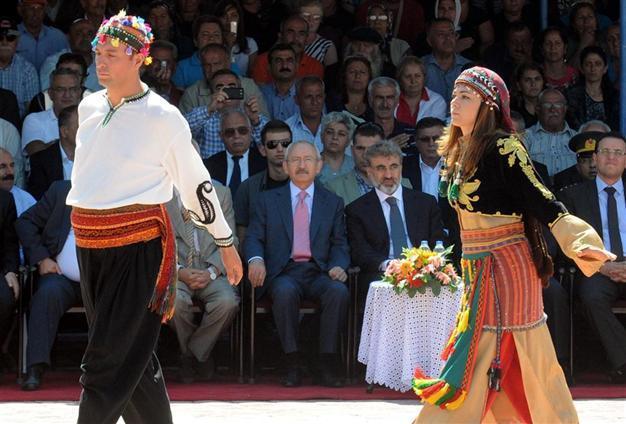Democratization package leaves Alevi demands unanswered
ISTANBUL / ANKARA

The members of the Alevi community have expressed their unhappiness about the lack of measures in the much-vaunted package. DHA photo
Government officials have sought to affirm that “democratization package” is not the final chapter in the country’s quest for greater openness, particularly for Alevis, but members of the community have expressed their unhappiness about the lack of measures in the much-vaunted package.Muharrem Erkan, the Tokat representative and deputy chair of the prominent Alevi organization Pir Sultan Abdal Cultural Association (PSAKD), voiced disappointment over the package, saying: “We could not see anything for Alevis in the package. Not only did [Prime Minister Recep Tayyip Erdoğan] not take the smallest step on the issues of granting legal status for cemevis or including cemevis in development plans, we could not hear a single word from him,” Erkan said Sept.30.
Ali Kenanoğlu, chair of another Alevi organization, the Hubyar Sultan Alevi Culture Association, also slammed the package, saying: “We did not expect this level of intolerance toward Alevis. There are no articles for Alevis, about Alevis. Full stop. As if the only expectations of Alevis from the democratization package was the name of Nevşehir University. What does it mean to give his name to a university when the Hacı Bektaş Veli Dervish Lodge can [only] be visited with a ticket and is closed to worship?”
Government officials, however, said their work on delivering rights to Alevis was continuing and that the package should not be considered final.
“Endeavors on the Alevi process are continuing. This issue will be announced to the public later on. The package is not final; new ones will follow,” Deputy Prime Minister Bekir Bozdağ said on his Twitter account.
Similarly, Hüseyin Çelik, deputy leader of the ruling Justice and Development Party (AKP), said they would keep working on the issue of cemevis. “There is an endeavor about that [cemevis]. On that issue, it is not the final point. Democratization continues,” Çelik said, answering reporters’ questions in Parliament.
Other key issues that were expected to be featured in the package but were not included were as follows:
* The centralization of complaint mechanisms against security forces so that torture and maltreatment will not go unpunished.
* Amendments to the Turkish Criminal Code (TCK) and Anti-Terror Law (TMK) for those who are not under probe instead of those who are not “involved in crime.” This was seen as pivotal for the release of journalists and members of the Kurdish Communities Union (KCK) under custody and was a key demand from the Peace and Democracy Party (BDP).
* The strengthening of local administrations, a particular desire of the BDP.
* Providing translation services at public services.
* Changing back the name of Tunceli to Dersim. Erdoğan, however, only discussed the renaming of villages. For a change in the names of districts and provinces, a legal amendment is required, yet the government has not initiated such plan.
* A legal reform for cemevis to be recognized as foundations formed for the public good that could benefit from land allocation, public funds and the ability to collect donations and pay wages to employees.
* The reopening of the Halki Seminary of the Ecumenical Patriarchate in Istanbul. The prime minister, however, only vowed to return seized land back to the Syriac Mor Gabriel Monastery.
* A ban on the closure of political parties.
* A law banning the “outdated” “Revolution Laws” introduced in the 1920s by Mustafa Kemal Atatürk, the founder of the Republic of Turkey, such as laws on hats and titles.
* Erasing the names of key figures that have become synonymous with the coups d’état of May 27, March 12 and Feb. 28 from public spaces.
















